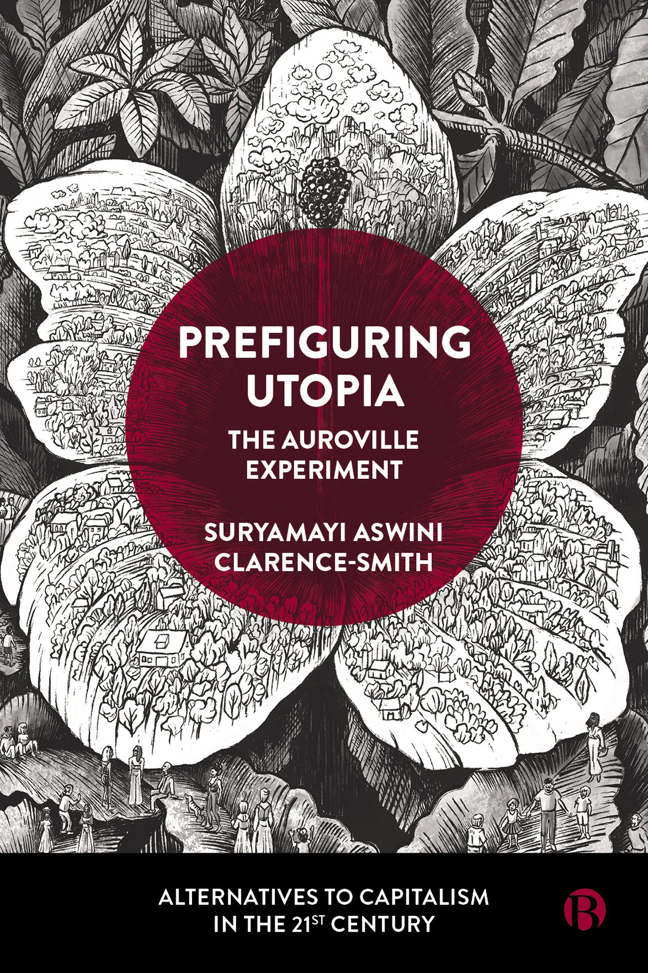Book contents
- Frontmatter
- Dedication
- Contents
- List of Figures and Tables
- Glossary
- About the Author
- Acknowledgements
- Foreword
- 1 All Life is Yoga: An Introduction
- PART I Culture
- PART II Polis
- PART III Economy
- Afterword
- Appendix A A Dream (The Mother, 1954)
- Appendix B The Auroville Charter (The Mother, 1968)
- Appendix C To Be a True Aurovilian (The Mother, 1971)
- Notes
- References
- Index
2 - Auroville Is …
Published online by Cambridge University Press: 24 January 2024
- Frontmatter
- Dedication
- Contents
- List of Figures and Tables
- Glossary
- About the Author
- Acknowledgements
- Foreword
- 1 All Life is Yoga: An Introduction
- PART I Culture
- PART II Polis
- PART III Economy
- Afterword
- Appendix A A Dream (The Mother, 1954)
- Appendix B The Auroville Charter (The Mother, 1968)
- Appendix C To Be a True Aurovilian (The Mother, 1971)
- Notes
- References
- Index
Summary
Introduction
If it were a gesture? It would be to open the hands, in a gesture of giving, as if to say ‘we don't know’, as if to say ‘nothing belongs to me’.
Khare and Devin, 2012Tell Me, My Friend, What Is This Auroville? is a book for children by Aurovilians Jyoti Khare and Christine Devin, in which a small blue rabbit asks the titular question of the Banyan tree located at Auroville's centre. ‘One cannot answer your question just like that’, answers the Banyan; ‘You have to find out for yourself. I can only help you’ (Khare and Devin, 2012). The rabbit decides to try to guess, asking the Banyan a series of questions: what would it be if it were a wild creature? Or a battle? Or a gesture?
I personally understand and experience Auroville to be a unique spiritual and societal project embraced and developed by diverse peoples who have made of it their home, their family, their work and their sadhana (‘spiritual path’). However, there are many layers to understanding the community and many labels ascribed to it from within and without. Is it an ecovillage, a model township, a cult, a utopia, a neocolonial enclave or a government project? The Internet is rife with videos made by visiting bloggers who seem to have found the answer in two days, while researchers and native authors have offered more nuanced accounts (Minor, 1999; Pillai 2005; Jouhki, 2006; Meier, 2006; Majumdar, 2017; Kapur, 2018, 2021; Horassius, 2021). In this chapter, I will not seek to define, but rather explore, how Auroville might be understood through various lenses and how well it sits in various frameworks.
Establishing communities in which to experiment with alternative ways of living than in dominant cultures and societies is a diverse and thriving phenomenon with a long and rich history and scholarship to draw from. In order to best contextualize the experience of Auroville, I will draw special attention to other communities inspired by utopian ideals and Indian spirituality, and that governments have been involved in establishing or supporting. I will also examine Auroville's roots in the Indian ashram tradition and how it is distinct from an ashram and other guru-centric organizations and communities, as well as its recalcitrant assimilation into the ecovillage movement and its uncomfortable embeddedness in a postcolonial context.
- Type
- Chapter
- Information
- Prefiguring UtopiaThe Auroville Experiment, pp. 19 - 34Publisher: Bristol University PressPrint publication year: 2023



